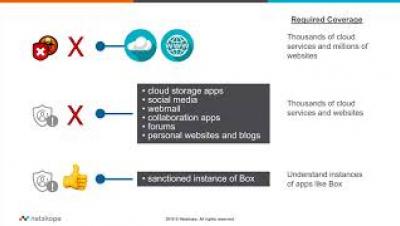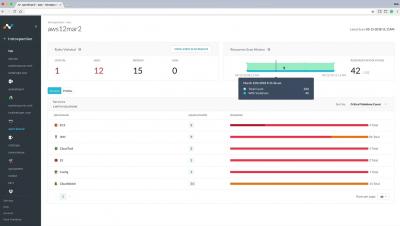Security | Threat Detection | Cyberattacks | DevSecOps | Compliance
Cloud
Smart Cloud Sessions: Understanding web use with Cloud XD
Smart Cloud Sessions: Hybrid Threats
Netskope for Web - Join the World Tour!
Netskope Demo - Continuous security assessment for AWS
Egnyte Data Shows 82% of Businesses Are Hybrid-Enabled in 2018
With unprecedented growth of data, larger files, and more distributed workforces, businesses are showing a strong reliance on a mix of cloud and on-premises infrastructure
Is My Data Secure In The Cloud?
Who Is Responsible for Your Cloud Security?
The cloud is a tremendous convenience for enterprises. Running a data center is expensive – doing so not only requires buying a lot of servers, cable and networking appliances but also electricity, labor costs, cooling and physical space. Services like Amazon’s AWS, Microsoft’s Azure, Oracle’s Cloud and Google’s Cloud Platform give businesses the benefits of having a data center without the expensive overhead and related hassles.
6 Common Cloud Security Myths Debunked for You!
You’ve probably been hearing about the cloud a lot, and with the increasing number of businesses moving their data online, it’s obvious that cloud computing and security are here to stay. With a number of benefits like data security, minimized risks, regulatory compliance, flexibility, round-the-clock availability, uninterrupted maintenance and support, and more, the cloud can help you manage your business easily.
Adoption of the Public Cloud in the Financial Services Industry
Cloud computing is not a new name anymore, and its adoption is growing consistently across various industries. Public cloud is a disruptive technology, irresistible to the Financial Services Industry (FSI) due to its tremendous benefits, including agility, elasticity, time to market and on-demand provisioning, to name a few. However, there are genuine concerns about the cloud’s adoption in FSI, and cloud providers are also innovating to meet the challenges faced by FSI.









